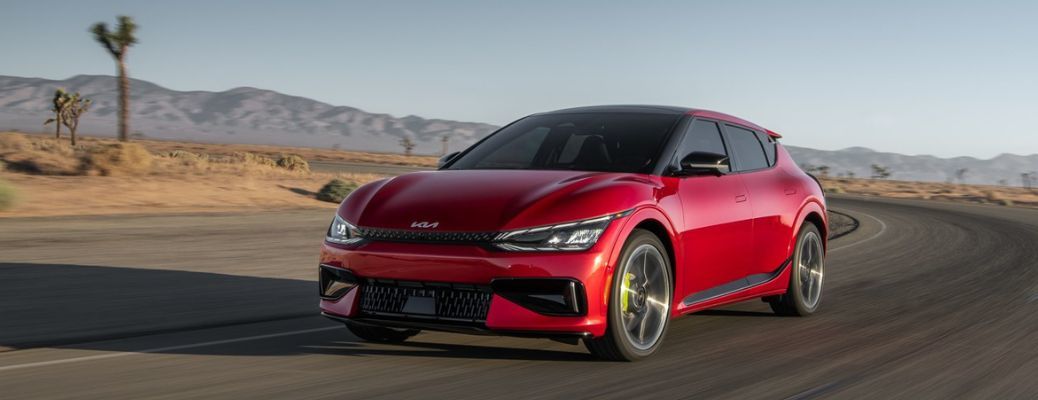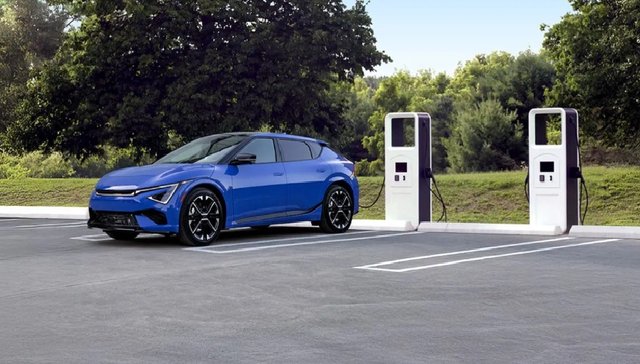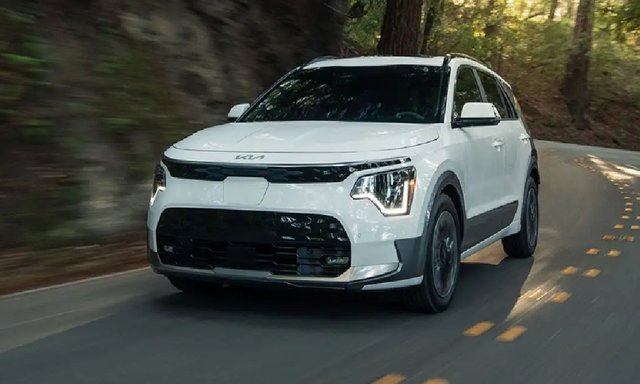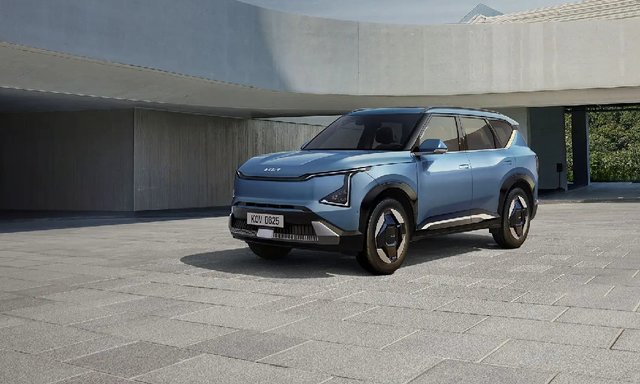Get to know the basics of electric vehicles for Canadian drivers. Learn about charging, range, and benefits. Start your EV journey today
As the automotive landscape evolves, electric vehicles (EVs) are becoming increasingly popular in Canada. If you’re considering making the switch to an EV but feel overwhelmed by the new technology, you’re not alone. This guide will walk you through the fundamentals of electric vehicles, focusing on Kia’s EV offerings in the Canadian market.
What is an Electric Vehicle?
An electric vehicle (EV) is a car powered by one or more electric motors and rechargeable battery packs. Unlike traditional internal combustion engine vehicles, EVs produce zero direct emissions, making them an environmentally friendly alternative.
Key Components of an Electric Vehicle
- Battery Pack: The heart of an EV, storing electrical energy to power the vehicle.
- Electric Motor: Converts electrical energy from the battery into mechanical energy to drive the wheels.
- Onboard Charger: Converts AC power from the grid to DC power for charging the battery.
- Power Electronics Controller: Manages the flow of electrical energy and controls the speed of the electric motor.
What is EV Range?
One of the most important factors for potential EV buyers is range – the distance an EV can travel on a single charge. Range can vary based on several factors:
- Battery capacity
- Driving conditions (city vs. highway)
- Weather conditions
- Driving style
- Use of climate control and other power-consuming features
Charging Basics
EV charging is divided into three levels:
- Level 1 Charging: Uses a standard 120V household outlet. Slowest charging method, typically adding 6-8 km of range per hour.
- Level 2 Charging: This method uses a 240V outlet (like those for large appliances) and can add about 30-40 km of range per hour.
- DC Fast Charging: This method uses specialized, high-powered charging stations. Depending on the vehicle and charger, you can charge an EV to 80% in about 30-60 minutes.
Kia EV Models in Canada
Kia offers several compelling EV options for Canadian drivers. Let’s explore the key models available in 2024:
Kia EV6
The Kia EV6 is Kia’s flagship electric vehicle, offering impressive range and performance.
Key Specifications:
- Range: Up to 499 km (RWD Long Range model)
- Battery: 77.4 kWh (Long Range) / 58.0 kWh (Standard Range)
- Charging: 10-80% in 18 minutes (350 kW DC fast charging)
- Power: Up to 320 hp (GT-Line AWD)
Trim Levels:
- RWD Standard Range
- RWD Long Range
- AWD Long Range
- GT-Line (AWD)
The EV6 stands out with its sleek design, spacious interior, and advanced features, such as Vehicle-to-Load (V2L) functionality, which allows you to power external devices using the car’s battery.
Kia Niro EV
The Niro EV is a versatile crossover that combines practicality with eco-friendly performance.
Key Specifications:
- Range: Up to 407 km
- Battery: 64.8 kWh
- Charging: 10-80% in about 45 minutes (100 kW DC fast charging)
- Power: 201 hp
Trim Levels:
The Niro EV offers a comfortable ride, ample cargo space, and advanced driver assistance features, making it an excellent choice for families.
Kia Soul EV
The Soul EV brings Kia’s iconic boxy design into the electric age, offering a unique blend of style and efficiency.
Key Specifications:
- Range: Up to 383 km
- Battery: 64 kWh
- Charging: 10-80% in about 45 minutes (100 kW DC fast charging)
- Power: 201 hp
Trim Levels:
With its distinctive looks and practical interior, the Soul EV is perfect for urban drivers who want to stand out from the crowd.
Performance in Canadian Weather
One common concern for potential EV buyers in Canada is how these vehicles perform in cold weather. Here’s what you need to know:
- Range Reduction: Cold temperatures can reduce an EV’s range by 20-40%. This reduction is due to increased energy use for cabin and battery heating and reduced battery efficiency in cold conditions.
- Preconditioning: Many EVs, including Kia models, offer preconditioning features, allowing you to warm up the car while it’s still plugged in, preserving battery charge for driving.
- Battery Management: Kia EVs have advanced systems that help maintain optimal battery temperature, even in extreme colds.
- Heat Pump Systems: Some Kia EV models come with heat pump systems, which are more efficient at heating the cabin than traditional resistive heating and help preserve range in cold weather.
Charging Infrastructure in Canada
Canada’s charging infrastructure is rapidly expanding, making EV ownership increasingly convenient. As of 2024, there were over 16,000 public charging stations across the country, and plans for continued growth exist.
Kia EV owners can take advantage of various charging networks, including:
- ChargePoint
- FLO
- Electrify Canada
- BC Hydro EV
- Circuit électrique (Quebec)
Many of these networks offer smartphone apps to help you locate chargers and plan your trips effectively.
Cost of Ownership
While the upfront cost of an EV may be higher than a comparable gas-powered vehicle, the total cost of ownership often favours EVs due to:
- Lower Fuel Costs: Electricity is generally cheaper than gasoline, especially when charging at home during off-peak hours.
- Reduced Maintenance: EVs have fewer moving parts, requiring less frequent maintenance.
- Government Incentives: The Canadian federal government offers up to $5,000 in incentives for eligible EVs, and some provinces offer additional incentives.
- Higher Resale Value: EVs tend to hold their value well, partly because their battery systems are long-lasting.
Environmental Impact
Switching to an EV can significantly reduce your carbon footprint. The environmental benefits are even more pronounced in provinces with clean electricity grids (like British Columbia, Quebec, and Ontario).
Kia is committed to sustainability, not just in their vehicles but throughout their manufacturing process. The company aims to achieve carbon neutrality by 2045, making your choice of a Kia EV part of a larger environmental initiative.
Advanced Features in Kia EVs
Kia’s electric vehicles come packed with advanced features that enhance both safety and convenience:
- Regenerative Braking: Captures energy normally lost during braking to recharge the battery, increasing efficiency and range.
- Smart Cruise Control: Adapts to traffic conditions, maintaining a safe distance from the vehicle ahead.
- Lane Following Assist: Helps keep the vehicle centred in its lane.
- Augmented Reality Head-Up Display: Projects important information onto the windshield, keeping your eyes on the road (available on select models).
- Vehicle-to-Load (V2L): Allows you to use your EV as a power source for external devices, great for camping or during power outages.
Making the Switch: Is an EV Right for You?
Consider these factors when deciding if an EV is suitable for your lifestyle:
- Daily Driving Distance: If your daily commute is within the range of an EV, you can easily charge overnight at home.
- Access to Charging: Consider your ability to install a home charger or access to public charging stations near your home or workplace.
- Driving Habits: If you frequently take long road trips, ensure you’re comfortable planning charging stops.
- Climate: While EVs perform well in cold weather, be prepared for some range reduction in extreme conditions.
- Budget: Factor in the initial cost, available incentives, and long-term savings on fuel and maintenance.
Understand the Basics of Electric Vehicles
Electric vehicles represent the future of transportation, offering environmental benefits, advanced technology, and a new driving experience. Kia’s range of EVs provides Canadian drivers with versatile options to suit various needs and preferences.
As charging infrastructure expands and technology advances, owning an electric vehicle (EV) is becoming increasingly practical and appealing. Whether you like the sleek performance of the EV6, the Niro EV's practicality, or the Soul EV's unique style, Kia offers an electric vehicle that can meet your needs while helping you reduce your environmental impact.
Making the switch to an EV is a significant decision, but with the right information, you’re better equipped to understand the basics of electric vehicles and determine if a Kia EV is the right choice for your Canadian driving needs.
To Learn More on Kia EV visit Kia.ca






